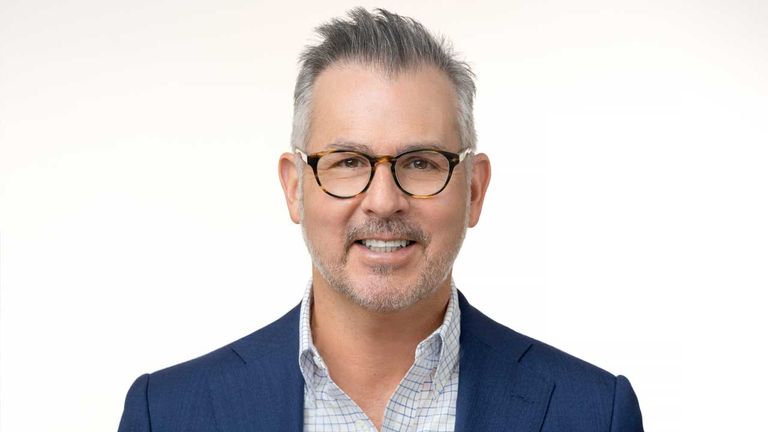Following his first year leading Atlas Ocean Voyages,James Rodriguez just stepped off the brand’s President’s Cruise — and he has a lot to think about.
We caught up with the president and CEO to ask him about the sailing, his first year at the helm of Atlas, and what year two will hold for him and the future of the company.
What was the President’s Cruise experience like?
We sailed onboard World Navigator in the Greek Isles; the voyage itself was probably one of the best I've ever been on, and I've been in the business for more than 20 years. I was really, really pleased with how it went.
It was special to see what the team has been building over this past year — both the shoreside team and the onboard team — the epicurean expeditions program and the onboard service levels.
 James Rodriguez of Atlas Ocean Voyages
James Rodriguez of Atlas Ocean Voyages
Credit: 2023 Atlas Ocean Voyages
Did you receive any valuable feedback from guests while onboard?
Guests come away with a sense of ownership — almost like they’re part of the Atlas family. This makes them very vocal advocates for the brand, and also very passionate about wanting to help make the product even better for their next voyage.
They continue to offer lots of suggestions for me — constructive criticism, things such as utilization of space. For example, that it would've been great if the entertainer we had onboard would've been in the seated auditorium instead of upstairs in the dome with great views. Passengers want expanded room service in some areas, and they want certain premium wines and liquors.
Many guests came away from this particular voyage having attended some great Epicurean Expeditions excursions that were very small and intimate. When we were in Kusadasi, Turkey, for instance, there was a group that went to a family home where the family prepared breakfast for the guests and talked about the traditions of Turkey and why they eat certain foods. Many passengers came back almost in tears about the experience that they had; many came back wanting more of that type of experience — which we're developing right now.
Looking back on your first year as CEO of Atlas, what are your greatest takeaways?
That I was right to build the team first. I had to find people who had an entrepreneurial mindset — those who can multitask and do things just outside their own expertise. That meant finding people who were not only salespeople, marketers or in operations, but also who actually knew the cruise business and knew how to work within different business units. Then, it was extremely important to find team members onboard, nurture them and keep them onboard for consistent delivery of the product.
You have to have a strong brand message, and you have to rely on your trade partners. When you’re a startup, you have very limited marketing dollars, and you also are a new brand — not very well-known. So, you have to reach out to partners that you've developed relationships with over many years and really rely on them — sell them on the product, let them know what you're planning to do. I think our success is due to the team I put in place who had those strong partnerships; the trust was already there.
What is your vision for the brand moving into your second year?
If you ask my team, the first vision is “sell, sell, sell” — make sure we fill the vessels. But really, it’s building upon this brand ethos we've created around this year-round expedition experience.
I wanted to take that expedition specialness and try to translate it into other areas and regions of the world, such as the Mediterranean. Our answer was the Epicurean Expeditions experience. As with our Polar Expeditions, we’ll put an Epicurean Expeditions team onboard to bring the regions of the world to life through their expertise, whether it's vintners or special guest chefs.
And we're also going to do it in other regions of the world with our Cultural Expeditions, whether we're in South America going up the coast to the Amazon, or into the Caribbean — or any other parts of the world that are maybe not as well-known for epicurean expertise.
Tell us more about the future Atlas fleet.
We take delivery of World Voyager — the sister ship of Navigator — and also World Traveler, in late September, in time to prepare for crossing over to start the 23/24 Antarctica season.
We'll take additional tonnage in the future. Our plans are to introduce World Seeker probably in late 2025, and then World Adventurer and World Discover shortly after that.
Will all the ships be identical, or will there be any differences— subtle or otherwise — for agents to be aware of?
The footprints of all the vessels are the same. The differences are very subtle in the decor. The designers really wanted each of these vessels to have their own personality.
How is the Atlas hardware different from all the other expedition newbuilds emerging in the market?
I believe it's a combination of the hardware and the overall experience provided by the team who's working onboard. You can have the most state-of-the-art vessels — which I think we do with our onboard propulsion and navigation systems — but if you're not providing an extraordinary onboard experience that's engaging, intimate and personalized for guests, any kind of hardware is going to fall flat and just simply be hardware.
We have the best of both worlds with Atlas. For those who maybe don't want the heavy expedition, we have the only L'Occitane spa at sea, and we have our Water's Edge social space, which is on deck five forward. There aren’t a lot of vessels where you can actually go to the bow of the yacht and experience the wildlife from the ship itself.